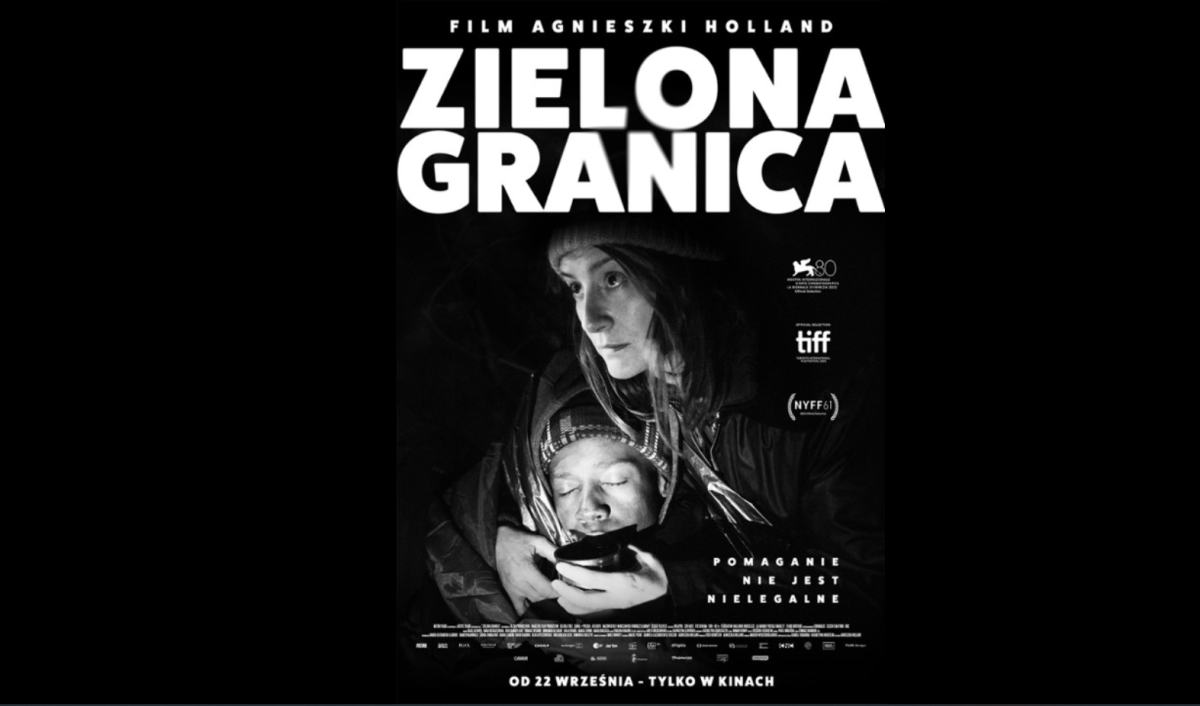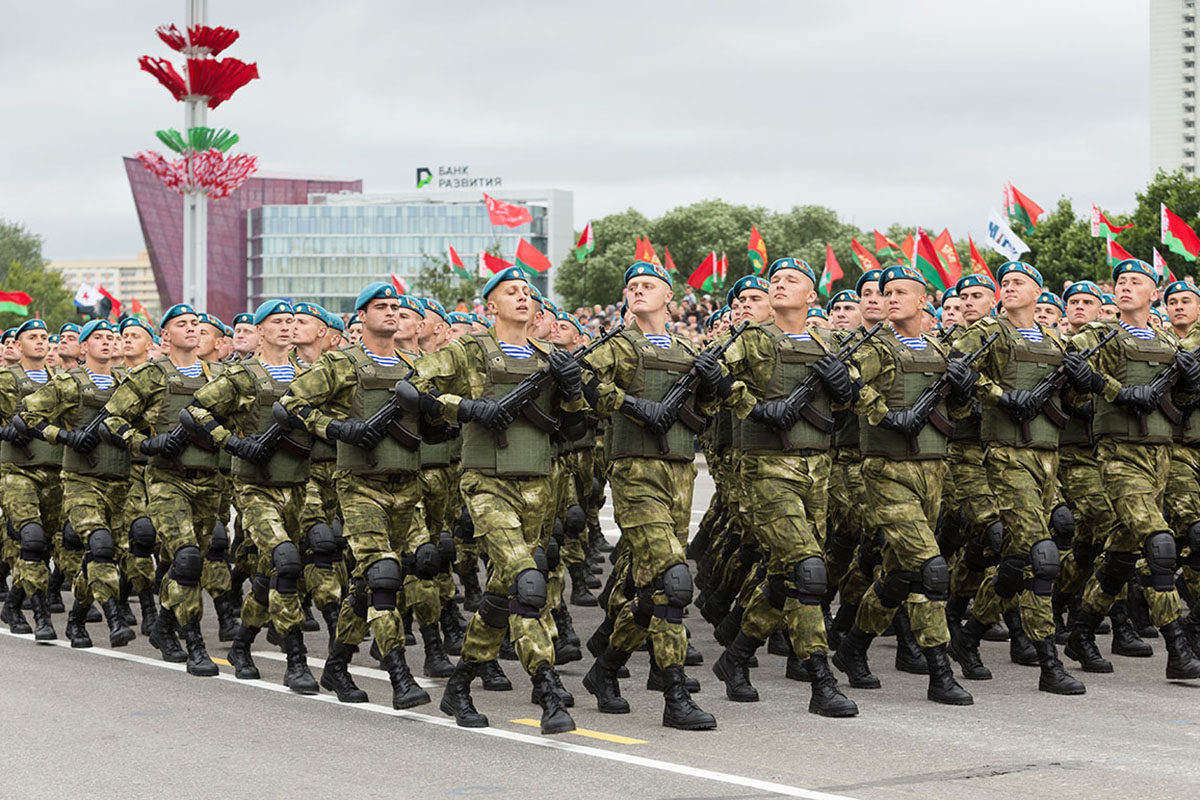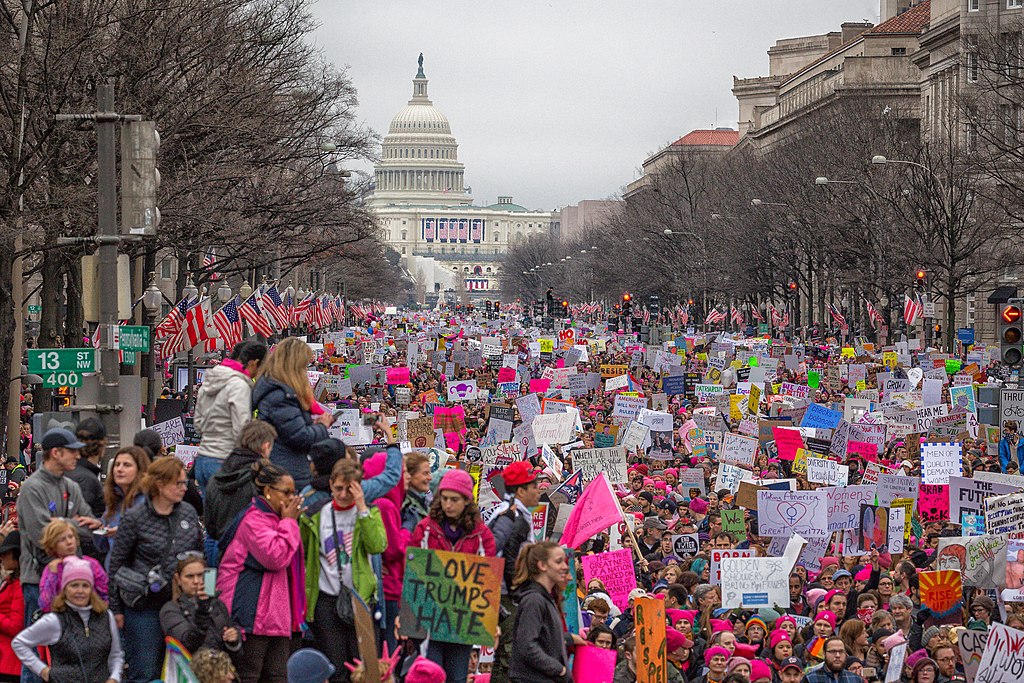Green Border, a movie full of lies
Agnieszka Holland’s movie Green Border (Zielona granica) is a reminder to today’s Polish audiences of what “engaged cinema” used to be many years ago. Appropriately for a political manifesto, the movie levels accusations and incites the audience to engage in “woke” activism.
Dariusz Wieromiejczyk
Following the example of the lead character, played by Maja Ostaszewska, viewers are expected to abandon the comfortable life of metropolitan liberals, and at the sound of a scream from the forest in the night, leap blindly into the borderland swamps. Because women and children, persecuted by the authorities, are drowning there, inaction – or even too long a hesitation – is an unacceptable response. The only salvation can come from joining in the fight on the right side. Indeed, the noblest figures in the movie are women activists from the left-wing Granica (“Border”) organization.
Their male companions are a little less admirable – they are less strongly committed, and come to anti-system activism slowly, by gradual steps. They are plagued by typical bourgeois weaknesses; they try to replace activism with medicines or therapy. They get involved in the action of moving into the forest or concealing dark-skinned refugees, but only near the end of the tale, influenced by the already “woke” women. The female psychologist who races into the forest experiences just such an awakening to activism and rebellion when she saves a drowning Afghan woman and child in the marshes of Polish Podlasie.
Unfortunately, she barely escapes from the episode with her own life, as she is entirely unprepared not only to bring anyone help, but even to move normally across the boggy ground. She runs after her emotions and forgets about everything else. The same can be said of Holland’s latest movie.
“Children’s crusade”?
The director is not afraid to use big words and level the most serious charges. Poland is ruled by fascists. The border guards set dogs on refugees and observe with satisfaction the suffering and dying of helpless souls. The law means nothing to them – and the functionaries are persuaded to take this attitude by their uniformed superiors. From the screen we hear the names of the politicians hated by the movie’s heroes – President Duda, Justice Minister Ziobro, Interior Minister Kamiński, his deputy minister Wąsik… To say that Holland dislikes her country’s current government would be a gross understatement. It is criminal; it beats, humiliates, and arrests whoever it wants. Citizens ought to respond at least with civil disobedience – or even better, with open defiance of the authorities’ orders. A few of the guards – who have retained some scraps of conscience – can escape brutalization by neglecting their duties and not carrying out their superiors’ orders, or best of all by resigning from the service.
However, to present today’s Poland in this way, some real gymnastics have to be performed. Green Border is a black-and-white movie, filmed in the manner of a documentary, with a hand-held camera, and featuring messy, apparently careless cropping and editing. This serves to make the stories told more credible, by making them appear like a documentary record. In this story-telling convention, manipulation – if it occurs – is particularly painful to the viewer.
Was the Polish border with Belarus really stormed mainly by women (half of them pregnant) and children? Were the few men among them, being either clumsy or elderly, mainly carrying babies and prams? This is how the crisis on the Polish border is portrayed in Agnieszka Holland’s movie. Among the refugees it is women who dominate – lost and helpless elderly women with the thick lenses of old-fashioned glasses, or young mothers carrying children. Children awaken sympathy – and these are filmed in such a way as to maximize the effect. The few men among the refugees are either crippled teenagers or gray-haired seniors. Mild, defenseless, and traumatized by war. There cannot even be talk of aggressive attacks by migrants against Polish border guards. Was this really what the storm by migrants from Belarus on the Polish border looked like? Was it really a “children’s crusade”?

Moreover, we are shown Polish border guards and police officers. They curse, drink on duty, tell violent jokes, and torment the refugees. In their free time they get drunk to the sounds of brisk Balkan rhythms – to resemble the savage Balkan combat squads from Emir Kusturica’s movies. The policemen, and even the simple farmers, are no better. They are wild-eyed and scruffily dressed, their speech vulgar and untruthful – and although they supply water to drink and apples to eat, this is just to give the exhausted refugees a false sense of security. Meanwhile, the farmer phones the border guards, who apprehend those hiding in the forest and carry out a cruel push-back operation.
Mean tricks
For me, the most repulsive parts of the film are the various scenes alluding to the experience of the Holocaust, with Poles cast as the villains. Some of them are obvious – helpless people thrown screaming from a truck, night time, a wall of barbed wire, and people in Polish uniforms setting a German shepherd dog on an old man. Is Holland perhaps making a contemporary imitation of the movie The Last Stage by her talented predecessor Wanda Jakubowska? The aforementioned Polish farmer, breezily denouncing the foreigners who are roaming the forest, also seems to be a character known from the director’s previous work. And what is being alluded to in the scene where a policeman notices Maja Ostaszewska’s character in a car he has pulled over? “Why is she so dark?” he asks. “Does she speak Polish?” In reply, in the style of the Jewish girl from the serial Polskie drogi, Ostaszewska begins reciting the Lord’s Prayer. The policeman hunting the “dark people” then waves them on their way. In a country like Poland, so affected by the German crimes, the use of such “cinematic quotes” that play on harrowing emotions seems to me to be a highly questionable technique.
Another lesser criticism of Green Border is its insistent ideologization. This means not just the use in dialogs of terms like psycholożka (for a female psychologist) and osoby uchodźcze (“refugee persons” in place of simply “refugees”). One might forgive the left-wing “freakiness” of the positive characters – not really either boys or women, eccentrically dressed, and behaving like a caricature of “patriarchal” movie standards. They curse in vulgar fashion – proving themselves a match for the border guards in this respect. Most of them seem to suffer from eye bulging – this is no doubt a form of emotional expression that is fashionable among female activists. The audience begins to anticipate the moment that Ostaszewska’s psychologist will perform another coming-out in front of the collective (she has already done the self-criticism) and end up in bed with one of the foul-mouthed activists. The activists’ contemptuous attitudes to the traditional, law-abiding liberals (known as “libeks”) seem to me to be an intriguing thread in Green Border, and one that deserves a moment of separate consideration.
Young women of high birth were especially active in the Russian revolutionary movement. During the February Revolution (which began with a demonstration on Women’s Day) many high school girls and female students were seen on the streets – young ladies from good, wealthy homes who nonetheless opposed the tsarist regime – spurring the revolutionized soldiers and seamen to rebellion. Many such idealists later joined the Women’s Battalion established by the liberal Kerensky government, which was supposed to “shame” the men with its courage. They later stood in defense of the Winter Palace, and were brutally raped by the Bolshevik mob. Looking at the “libki” as portrayed by Holland – well-off women taking in Moroccan teenagers to live in a suburban villa that drips with wealth – I was reminded of the fate of the Russian women idealists. Maybe I am reaching too far back with this analogy – after all, New Year’s Eve in Cologne was a fairly recent event.
The most refined falsehood in Green Border is the movie’s epilog. It shows a spontaneous mass action to help Ukrainian refugees after the outbreak of war with Russia. The director reminds us of the figure of the border guard who formerly looked on passively at the torments of the “colored” refugees on the Belarus border. This time, with care and sensitivity, he is carrying a little Ukrainian girl, among a crowd of people eager to help. A female activist who recognizes him comments spitefully: “You weren’t this kindhearted on the border with Belarus.” “I wasn’t there,” the guard replies – untruthfully, as viewers are aware.
The mass-scale assistance given by Poles to Ukrainian refugees was one of the most beautiful and noble experiences of this century. It is one of the things of which we as a whole society can be rightfully proud. The use of that event as an argument supporting the narrative of Polish brutality on the border with Belarus (the director is just – she sees wickedness and calls out the perpetrators, but praises acts of goodness) is an objectionable device. There is even an intertitle referring to the two million Ukrainian refugees whom the Poles helped. However, this can be interpreted as reverse proof of racism – white people get help, where black people were persecuted.
Although I regard Agnieszka Holland’s movie as a work full of manipulations that damage Poland’s image, there is one thing I must say about it – it is filmed with a journalistic passion, gives voice to strong emotions, and – using the appearance of improvised documentary-making – is skillfully composed. This is political cinema – socially engaged. However, it is not one of the socialist realist productions that are made in such large numbers today, but in a radically different style. Let us also remember that the best Polish historical film of the past eight years, and the one most watched around the world, is still undoubtedly Holland’s Mr. Jones. Compared with the indolent spongers who dominate our cinema, Holland is undoubtedly a figure whose voice is worth listening to, particularly when one does not agree with her diagnoses.
This article was first published in Polish in the Do Rzeczy weekly in September 2023.




